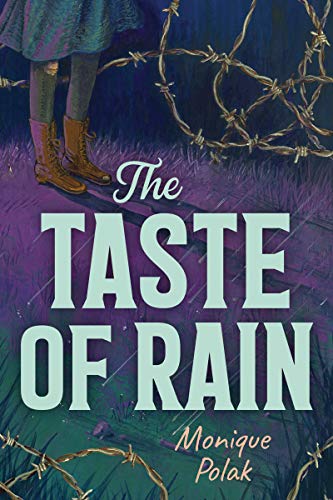The Taste of Rain
By 1945 Gwen has been a prisoner in a Japanese internment camp in northern China for three years, since the Japanese attacked her boarding school. Along with her classmates, she is endlessly hungry and thirsty, and she misses her parents, who are missionaries to China. Gwen’s teacher, Miss E., forms the girls into a Girl Guide troop who earn their Girl Guide badges in addition to continuing their education. But Miss E.’s most important role is to keep them from losing hope. Each morning she awakens them among the rats, bed bugs and the lice with a prayer, a song, and a pep talk to “another shiny new day.”
Gwen tries to follow this philosophy, but conditions in their prison camp get worse. The one guard who has shown them kindness is killed for that. The camp commandant deliberately smashes the glasses Miss E. needs for reading. Cruel treatment is standard, and dysentery is common. Other girls are less likely to maintain a positive attitude. The thin soup becomes even thinner, and the girls become weaker. It isn’t a spoiler to say that food eventually arrives, and the camp is liberated. The girls are alive to tell this, their story.
The novel, told from the viewpoint of 13-year-old Gwen, is one of human endurance. Despite crowded, inhumane conditions, Gwen tries to do her best, even though much is beyond her understanding or her control. Not all her decisions are the best. Steadily sustaining her and the other girls is the indomitable spirit of Miss E., a woman who, starving and imprisoned, can crow like a cock to wake the children up. I found it difficult to read about the harsh conditions in the camp, but the immediacy of Gwen’s experience made the book hard to put aside.










